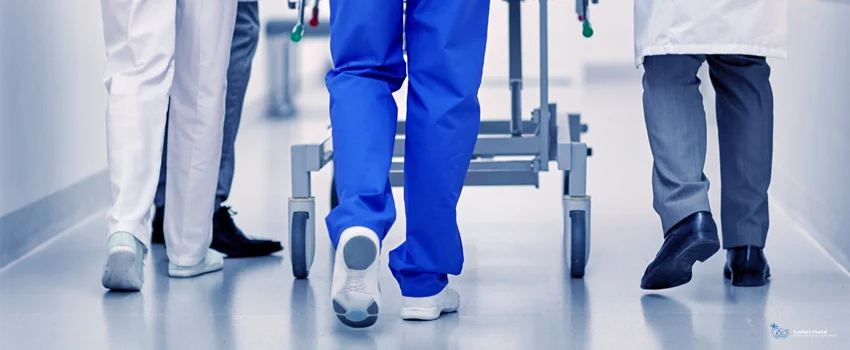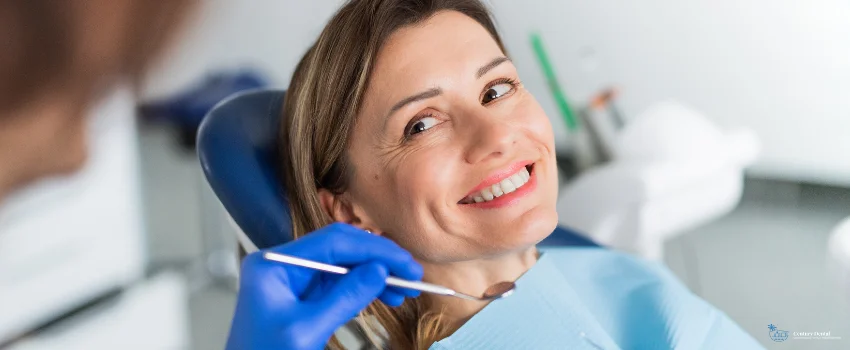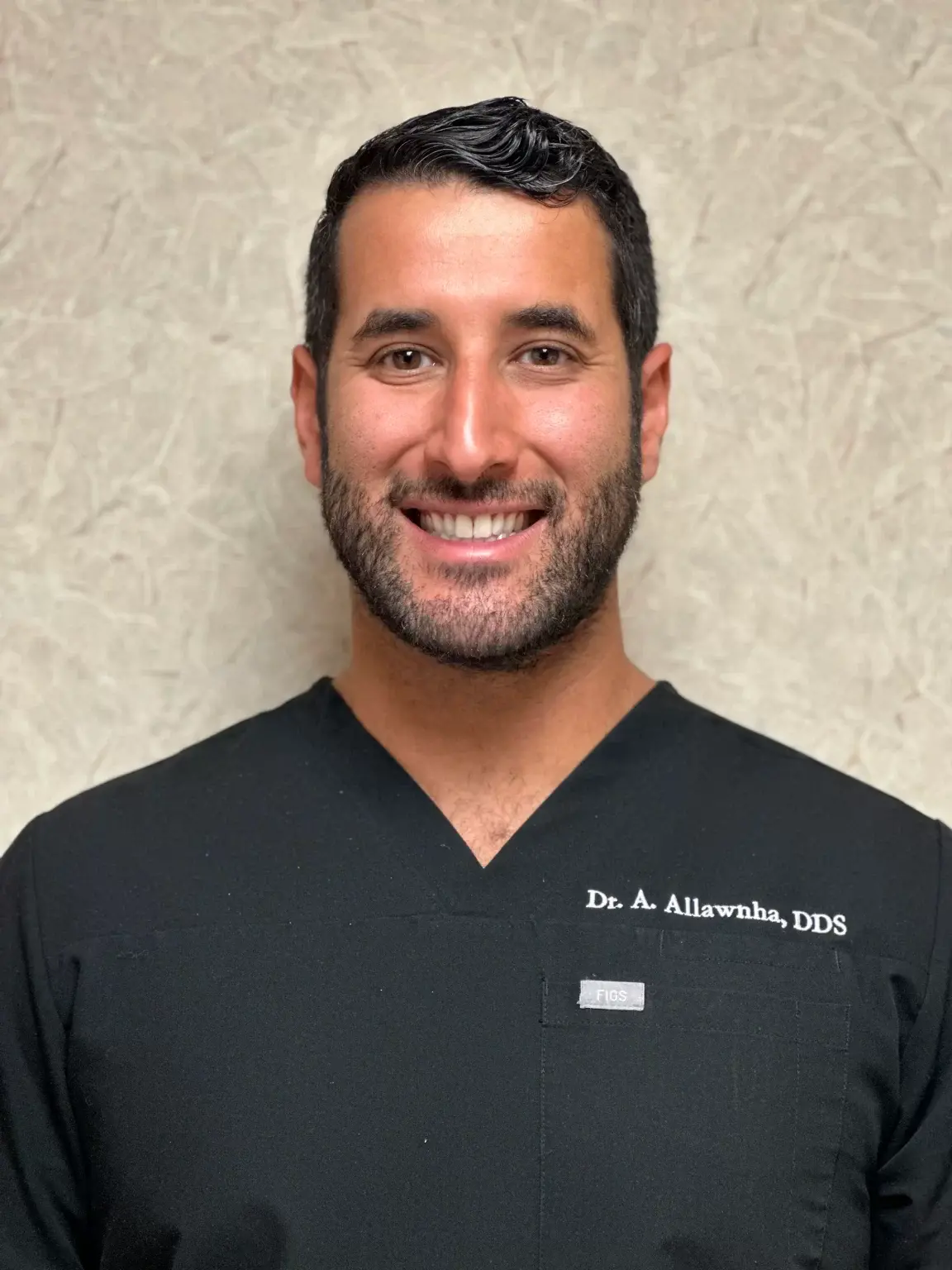A sudden toothache, a knocked-out tooth, or a broken orthodontic appliance can be a real nightmare, causing excruciating pain and discomfort that can throw off our entire day. It’s no wonder that many feel inclined to seek immediate relief from the emergency room.
However, despite the name, dental emergencies should not always lead to a trip to the hospital. In fact, keeping emergency dental situations away from the ER can benefit both patients and the healthcare system.
Most Common Types of Dental Emergencies
Dental issues can happen to anyone at any time, and can be a source of significant discomfort and pain. Knowing how to differentiate what are dental emergencies from what are not is crucial in managing such situations. Here are the seven most common dental issues that may require urgent care:
1. Knocked-Out Tooth
This emergency is often a result of a sports injury or an accident. When a tooth is knocked out, one should immediately locate it and hold it by the crown, avoiding the root. The tooth can be re-implanted if the patient sees a dentist within 30 minutes of the injury.
2. Chipped or Broken Tooth
Suffering from a chipped or broken tooth can be a painful experience that can leave sharp edges in your mouth, potentially causing cuts to your tongue or cheeks. If you find yourself in this situation, the first step is to rinse your mouth with warm water and apply a cold compress to reduce the swelling. This is just a temporary fix, so visit a dentist as soon as possible to prevent further damage.
3. Toothache
Various reasons, including decay, infection, and injury, can cause toothaches. The pain can range from mild to severe, and it can be accompanied by swelling and sensitivity to hot or cold foods and drinks. It is essential to understand the underlying causes to receive the right medication for tooth pain.
4. Lost Filling or Crown
Losing a filling or crown can be a painful and uncomfortable experience, as it can expose the tooth’s root and leave it vulnerable to further damage or decay. If you lose a filling or crown, cover the area with dental cement, which can be found at most drugstores, and visit a dentist right away.
5. Broken Orthodontics
Orthodontic appliances like braces are designed to align and straighten teeth. However, they can break, causing discomfort and delaying treatment progress. It’s crucial to visit your orthodontist as soon as possible to have the broken appliance appropriately fixed and avoid any setbacks in your treatment.
6. Severe Pain after Tooth Extraction
Pain and discomfort after tooth extraction are common, but if the pain becomes severe or the bleeding does not stop after a few hours, it could indicate a problem. In such cases, it is crucial to contact your dentist immediately and seek advice on what to do next.
7. Abscessed Gums
An abscessed gum is a bacterial infection that causes a pocket of pus in the gum, leading to severe tooth pain, fever, and swelling. This condition can become life-threatening if left untreated. It is essential to seek dental care immediately to prevent further complications.
Why Keep Dental Emergencies Away From the ER
While hospitals and emergency rooms are equipped to handle any health conditions, there are dental issues that are best entrusted to dentists and dental care providers. Here’s why dental emergencies in the ER are not advisable:
1. Relieve pressure from the hospital.
The need for emergency dental care can put unnecessary strain on hospital resources, especially in the emergency room. Hospitals can focus their efforts and resources on other critical cases by keeping them away from the ER, ultimately improving patient outcomes and reducing wait times.
2. Save money on hospital bills.
Emergency room visits can be expensive. Seeking dental care in an emergency room can result in a hefty medical bill that can be avoided by visiting a dentist instead. Dental offices can provide affordable care, often at a fraction of the cost of an ER visit.
3. Reduce exposure to illnesses.
Hospitals and emergency rooms are high-risk areas for exposure to illnesses, including highly contagious diseases. By seeking dental care from a dentist or dental clinic, patients can reduce their exposure to illnesses and lower their risk of contracting infections.
4. Receive the most appropriate dental treatment.
Most emergency rooms are not equipped to provide specialized dental care. Seeking dental care from a licensed dentist ensures you receive the most appropriate treatment for your specific dental emergency. Dentists are trained to handle various dental emergencies and have the necessary expertise to provide immediate relief and long-term solutions.
5. Ensure follow-up dental care.
After a dental emergency, follow-up care is crucial to ensure proper healing and prevent further complications. Hospitals and emergency rooms may not be able to provide this necessary follow-up care, leaving patients without the proper support they need to recover fully.
Can you go to the ER for tooth pain?
While it is advisable to seek professional dental care for any dental emergency, there are certain situations when visiting the ER is appropriate. These include severe bleeding, swelling, or infections that can pose a threat to your overall health. Moreover, if you are experiencing severe tooth pain, the ER may be able to provide medication to manage the pain until you can see a dentist.
How To Prevent Dental Emergencies
Emergency dental issues not only cause pain and discomfort, but can also result in costly dental procedures. Fortunately, these can be avoided by taking a few simple steps to prevent them from happening in the first place:
- Maintain good dental hygiene. Maintaining good dental hygiene is one of the most effective ways to prevent dental emergencies. Brush your teeth twice a day and floss regularly to remove food particles and prevent bacteria buildup in teeth and gums.
- Wear appropriate mouthguards. If you engage in sports or other physical activities, it’s essential to wear proper mouthguards to protect your teeth from injury.
- Watch what and how you eat. Avoid hard or sticky foods that can damage your teeth or dental appliances. Cut food into smaller pieces to reduce the risk of choking.
- Be wary of your chewing habits. Some people have a habit of chewing on objects such as pens or pencils, which can cause damage to the teeth. If you’re clenching your teeth frequently, talk to your dentist about getting a custom nightguard to protect your teeth.
- Visit your dentist for regular checkups. Your dentist can check for signs of decay, gum disease, and other dental issues, and provide appropriate treatment to prevent them from developing into more serious problems.
Key Takeaways
If left untreated, emergency dental issues can cause a range of issues, including the spread of infection, tooth mobility, and even tooth loss. However, rushing to the emergency room is not always the best course of action. This not only puts your health at risk but may also lead to unnecessary costs.
During a dental emergency, it’s always best to contact a dentist and manage the pain until professional help is available. While prompt and timely treatment is the key, practicing preventive dental care can go a long way to avoiding complications and maintaining your healthy smile.
Visit Century Dental today for prompt and timely dental care.
Don’t let dental emergencies or any other dental issues keep you from living your best life. At Century Dental, we allow same-day dental appointments to ensure that you receive the prompt and timely care you need. From routine cleanings and check-ups to dental implants and teeth whitening, our dentist in Treasure Island, FL, is dedicated to helping you achieve the healthy, beautiful smile you deserve.






